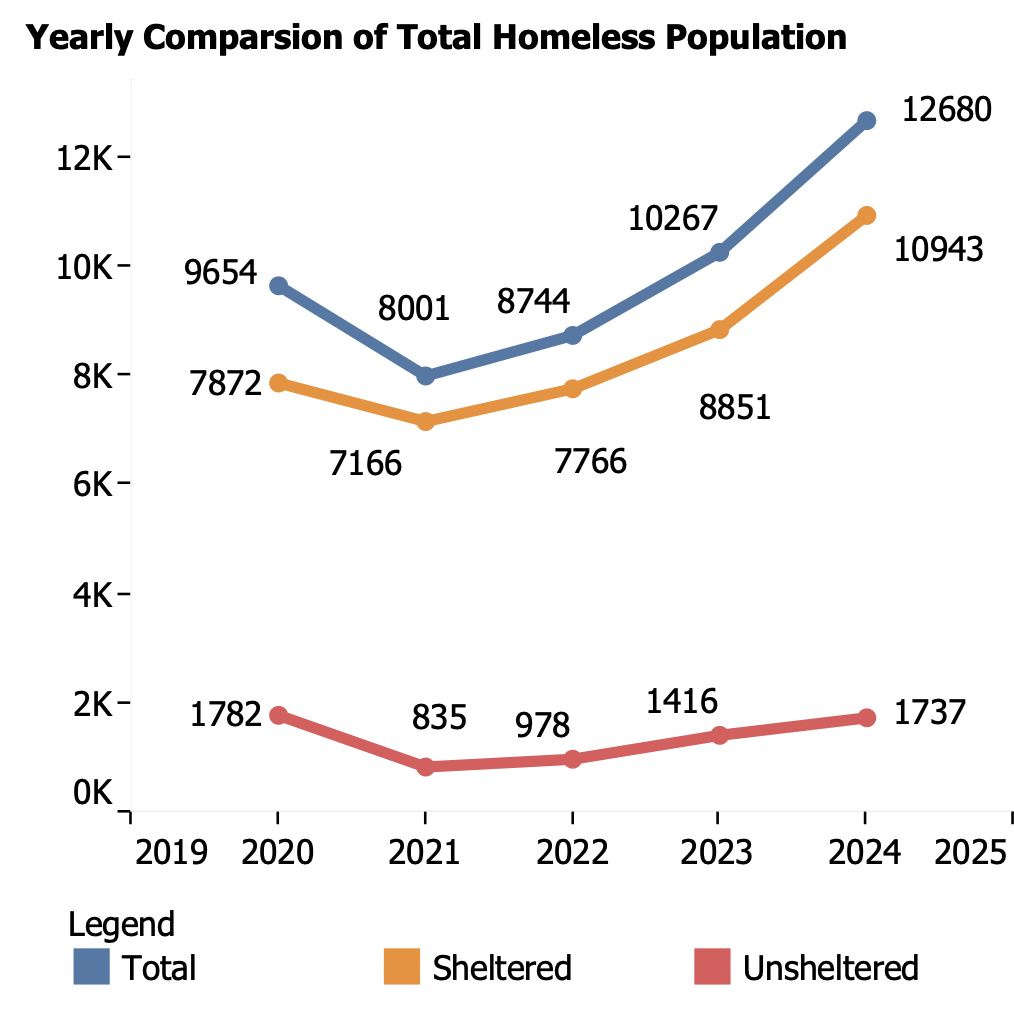New Jersey, a state celebrated for its vibrant communities, beautiful coastline, and bustling urban centers, is currently confronting a pressing issue that affects its most vulnerable residents: homelessness. Recent data reveals a concerning trend, with the number of individuals experiencing homelessness reaching a ten-year high, approaching 14,000 people across the state. This “shocking” statistic underscores the urgent need for heightened awareness and comprehensive solutions.
The Sobering Reality: Disproportionate Impact
A particularly heartbreaking aspect of this crisis is the disproportionate number of Black residents who are experiencing homelessness. Despite making up a smaller percentage of the state’s overall population, Black New Jerseyans represent nearly half of the individuals counted as homeless. This stark disparity highlights deeply rooted systemic issues and inequities that require targeted interventions and a commitment to social justice.
The latest count, conducted on a single night in late January, paints a stark picture: over 11,700 individuals were in sheltered locations – including emergency shelters, hotels, and motels – while nearly 2,000 people were unsheltered, living in vacant buildings, on the streets, or in other places not meant for human habitation. The increase in unsheltered individuals is particularly troubling, as it suggests a growing segment of the population without even basic refuge.
Understanding the Complex Web of Causes
Homelessness is rarely a singular issue; it’s a complex interplay of various factors. While the real estate landscape in New Jersey (https://explorenewjersey.org/category/real-estate/) continues to evolve, with rising home prices and a competitive market, these broader economic trends undoubtedly contribute to housing instability. The escalating cost of living, stagnant wages for many, and a shortage of truly affordable housing options create a precarious situation for numerous households. A sudden job loss, a medical emergency, a family crisis, or even simply a significant rent increase can push individuals and families to the brink.
Restrictive zoning laws in some municipalities can limit the development of diverse housing types, including more affordable multi-family units, further exacerbating the supply-and-demand imbalance. While these laws are often intended to preserve neighborhood character, their unintended consequence can be an exclusionary effect that makes it harder for lower and middle-income residents to find suitable housing.
Community Impact and Collective Responsibility
The presence of homelessness impacts not only the individuals experiencing it but also the fabric of our communities. It can strain social services, impact public health, and create a visible sign of societal challenges. However, it also serves as a powerful call to action, reminding us of our collective responsibility to support our neighbors in need.
Many dedicated organizations and government initiatives across New Jersey are working tirelessly to address this crisis. From providing emergency shelter and transitional housing to offering case management services that help individuals navigate the path to permanent housing, these efforts are crucial. There’s a growing emphasis on “Housing First” approaches, which prioritize getting people into stable housing immediately, recognizing that a safe home is the foundational step to addressing other challenges like employment, mental health, or substance use.
Pathways to Progress: What’s Being Done
New Jersey is taking steps to ease access to vital resources. Changes are being implemented to make emergency assistance services more readily available for those struggling with rent or in need of immediate shelter. There’s also a focus on streamlining access to childcare for homeless families and removing barriers for young adults at risk of homelessness. The state is also exploring the creation of an Office of Homelessness Initiatives to coordinate efforts more effectively.
Furthermore, community-based organizations are stepping up with street outreach teams, building trust with unsheltered individuals and connecting them to critical services. These teams provide not just immediate necessities like food and hygiene kits, but also vital pathways to housing, medical appointments, and financial counseling. Legal aid services also play a significant role, helping residents understand their rights and avoid eviction.
While the current numbers are indeed sobering, they also serve as a renewed impetus for action. By understanding the multifaceted causes of homelessness, acknowledging its disproportionate impact on certain communities, and supporting the various initiatives working towards solutions, New Jersey can move closer to ensuring that every resident has a place to call home. This challenge demands our attention and our collective effort to build a more secure future for all.












